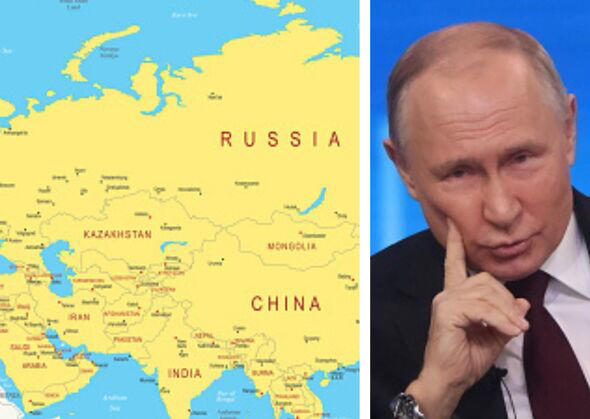In the midst of escalating tensions, a suggestion for a demonstrative nuclear explosion has emerged from Russia, aiming to deter further conflict.

© Getty
Demonstrative Nuclear Explosion: A Controversial Proposal
In the current global landscape, tensions are running high, particularly between Russia and the West over the conflict in Ukraine. Amidst this backdrop, a provocative suggestion has surfaced: a demonstrative nuclear explosion. This proposal, originating from Russia, seeks to serve as a deterrent against further escalation in the ongoing conflict.
The Proposal:
Dmitry Suslov, a senior member of the Moscow-based Council for Foreign and Defence Policy, has put forward the idea of a “demonstrative” nuclear explosion. This proposal comes at a critical juncture, with President Vladimir Putin issuing stern warnings to NATO members regarding their support for Ukraine. The suggestion of a nuclear detonation, albeit non-combat in nature, is intended to signal Russia’s readiness to escalate if necessary.
Escalating Tensions:
The backdrop for this proposal is the escalating tensions between Russia and the West over Ukraine. With Ukraine using Western-supplied arms against Russian targets and advocating for strikes within Russian territory, the risk of a broader conflict looms large. President Putin’s warnings about the potential for a global conflict have underscored the seriousness of the situation.
Rationale Behind the Proposal:
Suslov emphasizes the need for Russia to take decisive action to deter further escalation by the West. He argues that a demonstrative nuclear explosion would serve as a stark warning, reminding Western politicians of the consequences of provoking Russia. The psychological impact of such an event, broadcast live around the world, could reignite the fear of nuclear war, which has historically prevented major conflicts between great powers.
Concerns and Alarm:
While the proposal aims to deter further conflict, it has raised significant concerns, particularly among Western security experts. The prospect of Russia conducting a nuclear test, even for demonstrative purposes, has alarmed many, fearing that it could escalate tensions to dangerous levels. The Kremlin’s silence on Suslov’s suggestion adds to the uncertainty surrounding Russia’s intentions.
Official Response and Actions:
Officially, Russia’s nuclear policy remains unchanged, but recent actions suggest a growing dissatisfaction with perceived Western aggression. The Kremlin has ordered tactical nuclear weapons drills, signaling its readiness to respond to any provocation. However, there has been no official comment on Suslov’s proposal, leaving its fate uncertain.
© Getty
Implications and Risks:
The proposal for a demonstrative nuclear explosion carries significant implications for global security. While intended as a deterrent, it risks further escalating tensions and potentially sparking a broader conflict. The possibility of Russia conducting such a test, even if non-combat in nature, raises concerns about the stability of the international order and the risk of nuclear proliferation.
Alternative Measures:
In addition to the nuclear test proposal, Suslov recommends other measures to deter further escalation. These include strategic nuclear exercises and explicit warnings to countries supplying arms to Ukraine. By signaling Russia’s willingness to respond forcefully, these measures aim to dissuade the West from crossing a critical threshold.
Conclusion:
The proposal for a demonstrative nuclear explosion represents a dangerous escalation in the conflict between Russia and the West. While intended to deter further aggression, it risks destabilizing the fragile balance of power and reigniting the specter of nuclear war. As tensions continue to mount, the international community must remain vigilant and work towards peaceful resolution to avoid the catastrophic consequences of conflict.
ALSO READ: